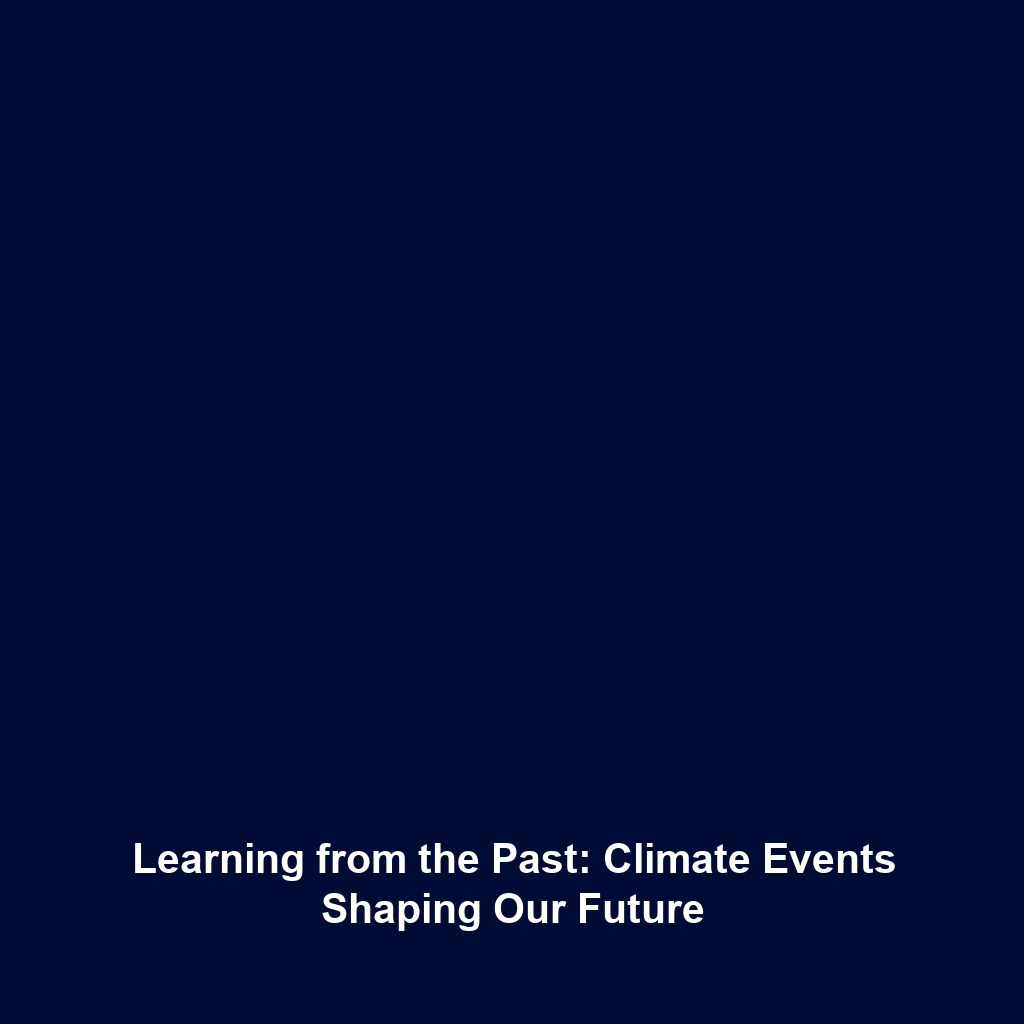How Studying Past Climate Events Can Inform Models of Future Climate Change
Introduction
Understanding our planet’s climate history is crucial for predicting future climate scenarios. Studying significant past climate events such as the Paleocene-Eocene Thermal Maximum (PETM) and the various Ice Ages offers invaluable insights into the mechanisms driving climate change. By analyzing these historical periods, scientists can refine climate models that forecast future trends, helping societies prepare for upcoming challenges. This article explores how historical climate events shape our understanding of climate dynamics and their significance within the broader context of Climate History.
Key Concepts
Understanding Climate Events
The PETM, which occurred around 56 million years ago, is characterized by a dramatic temperature rise linked to substantial carbon release. In contrast, the Ice Ages illustrate periods of extensive glaciation caused by variations in Earth’s orbit and axial tilt. Both phenomena provide critical data that enhance our understanding of climate sensitivity and feedback mechanisms.
Relevance to Climate History
Studying these events falls under the umbrella of Climate History, which examines the Earth’s climatic changes over geological time. Insights gained from analyzing climate proxies, such as ice cores and sediment layers, contribute to our comprehension of long-term climate patterns and inform current climate change models.
Applications and Real-World Uses
The knowledge derived from historical climate studies has several real-world applications:
- Climate Policy Development: Policymakers can utilize historical data to formulate regulations aimed at mitigating climate change impacts.
- Urban Planning: Cities can adapt infrastructure development by analyzing past climate extremes and trends.
- Natural Resource Management: Understanding past climate events aids in managing water resources and agricultural practices effectively.
Current Challenges
Despite the progress made, there are challenges in studying historical climate events:
- Data Limitations: Incomplete or biased data from ancient periods can hinder accurate modeling.
- Interpretation Issues: Different interpretations of fossil and geological records can lead to conflicting climate models.
- Technological Constraints: The need for advanced technologies to analyze complex climate data remains a challenge.
Future Research and Innovations
Future research in this domain is poised to unlock new innovations:
- Enhanced Climate Modeling Tools: Advancements in computational power are enabling more intricate climate simulations.
- Next-Gen Data Collection: Emerging technologies such as remote sensing and deep-sea drilling are expanding our data collection capabilities.
- Interdisciplinary Approaches: Collaborations across disciplines can enhance data interpretation and model accuracy.
Conclusion
Studying past climate events like the PETM and Ice Ages is essential for shaping future climate models and understanding climate dynamics. The lessons learned from these historical occurrences are vital for developing effective climate-related policies and strategies. It is imperative for researchers, policymakers, and the general public to engage with Climate History to better prepare for future climate changes.
For further exploration on climate topics, consider visiting our articles on climate policy development and advanced climate modeling.
